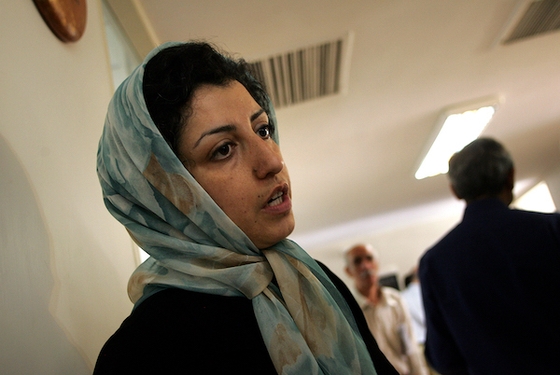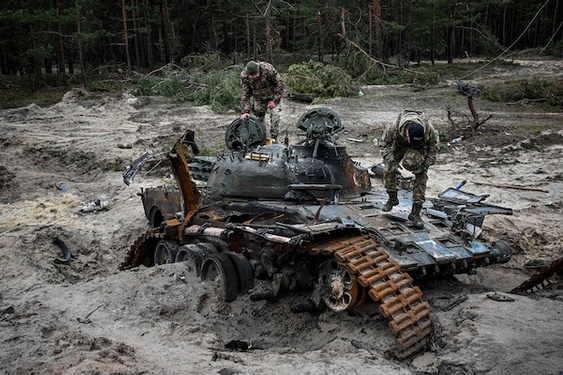He’s old enough to remember the heady first years of the Cuban Revolution when all seemed possible, is proud of the way Fidel Castro thumbed his nose at 11 U.S. Presidents, and is grateful that as an Afro-Cuban he was able to flourish as a journalist in what was traditionally a racist society.
Yet Luis, a 68-year-old native of Havana, says dreams of thriving in a socialist utopia were dashed a long time ago once the reality sunk in that Castro’s Communist vision was just an illusion.
Now, even with Cuba on the cusp of sweeping changes that could transform the island in ways not seen in decades, Luis is like most citizens who recently spoke to the New York Daily News — wary of what he expects will be more broken government promises, weary of living under an inept system that has long made putting food on his family’s table a daily struggle.
“I love Cuba and I would never leave it, not even to go live in the United States,” said Luis in Spanish, sitting in the living room of his modest home in the city’s bustling Vedado district.
“But life here is very difficult. Whatever hope we had only a few years ago that things would get better is gone. We are constantly in a crisis.”
Sixty years after Castro and his ragtag band of bearded guerrillas seized control of the island on New Year’s Day 1959 and established a repressive Communist regime, Cuba stands at another crossroads in its long, volatile history.
With Fidel Castro dead, his brother Raul semi-retired, and the island trying to cash in on a growing tourism industry, a relatively young, seemingly progressive new leader is looking to modernize a stagnant economy, tweak archaic laws and shake up a stifling bureaucracy — without totally compromising the state’s long-held “Socialism or Death” doctrine.
It promises to be a daunting task for Miguel Diaz-Canel, an unassuming, 58-year-old career politician who in April was hand-picked by Raul Castro to succeed him as president. Cubans hoping for a new beginning still face the same old issues: ridiculously low wages, chronic shortages of food and other basic goods, an inefficient transportation system, and a lack of adequate housing exacerbated by crumbling, Colonial-era homes literally falling down on its inhabitants after years of neglect.
At the same time, a generation of angry, restless and internet-informed younger Cubans is refusing to buy into the Revolution’s empty rhetoric and beginning to push back against the fledgling administration with rare demonstrations of civil disobedience.
In early December, members of Havana’s artists and musicians community tried to organize a public protest against a proposed law deemed to be censorship — though it was quickly quashed when organizers were rounded up and detained the day before it was set to take place, according to 14ymedio, an independent news website out of Havana that’s often critical of the government.
Days later, Havana’s private taxi drivers fed up with government controls staged a subtle strike by refusing to pick up passengers for several days, forcing desperate commuters to turn to the city’s overcrowded and undependable buses.
“There’s been quite a fascinating shift over the past six months, especially in the past six weeks as Cuban people of all walks of life, not just political dissidents, are testing the boundaries with a new president,” said Ted Henken, a Baruch College sociology professor and co-author of “Entrepreneurial Cuba: The Changing Policy Landscape.”
“Many see Diaz-Canel as not having legitimate historical credentials because he’s young and didn’t fight in the revolution,” Henken added. “He’s running things in a more open way … but they’re waiting to see if there’s anything real that will come about from the changes.”
Reforms — some subtle, many of them major — have come steadily over the last decade or so after an ailing Fidel, who died in 2016 at age 90, transferred power to his younger brother Raul after a half-century of iron-fisted rule.
But the political, social and economic changes proposed in just the past few months under Diaz-Canel would’ve made the staunchly Communist comandante choke on his Cohiba.
The Cuban National Assembly recently approved a draft of a new constitution that legitimizes the ownership of private property, as well as businesses such as the restaurants and small hotels that have sprung up across the country in recent years.
It also encourages badly needed foreign investment, sets two five-year term limits on the presidency — a huge deal considering the Castro brothers’ six-decade stranglehold on the nation — and even suggests the eventual legalization of same-sex marriage.
In what could be taken as a positive sign, the constitution’s first major overhaul since the 1970s was the result of direct suggestions by the Cuban people, according to the government. Citizens will decide on whether to accept the final document in a nationwide referendum in February — though several opposition groups are pushing the people to vote no.
Diaz-Canel called the process a “genuine and exceptional demonstration of the practice of power by the people” that exhibited the “participative and democratic nature of our political system.”
Not up for negotiation, however, was the fact that Cuba will remain a socialist state run by the Communist Party — headed by the 87-year-old Raul Castro until at least 2021 — even as capitalist ideals continue to creep into its Cold War-era Castroism.
It’s why many Cubans, especially the island’s younger, internet-savvy generation whose access to Google, Facebook, YouTube and other sources of news and information have made them impervious to state-controlled propaganda, are skeptical any new initiatives will result in wholesale changes.
“This is just like when people were nervous about Raul taking over for Fidel,” says Jorge, a 26-year-old restaurant worker who, like nearly everyone who spoke to The News, refused to give his real name out of fear of reprisals.
“(The state) is just trying to give us a little something to show that changes are possible and that things will improve,” he said. “But they don’t.”
Diaz-Canel has been trying hard to change that perception by making his administration more transparent — a move unheard of under the Castros. The president, who is active on Twitter and regularly tweets positive messages about the state’s goals and accomplishments, pushed all party ministers to open their own accounts so they can better communicate with the people even if that leaves them open to criticism by those on the island and anti-Castro Cubans abroad.
Diaz-Canel took to Twitter two weeks ago to announce the creation of a YouTube channel that will feature videos and news focused on the workings of his presidency.
And in early December, the state began rolling out 3G internet access for all cellphone users. Most Cubans currently can only access Wi-Fi in public hot spots around the country — a common sight in Havana is clusters of young people clutching their phones in parks or outside tourist hotels trying to get a signal.
But in a country where the average salary is $25 to $30 a month, the new data plans are out of reach for most citizens with prices that range from about $7 to $30.
“How are we supposed to afford that when first we need to buy food and medicine?” said Luis, who lives on a monthly pension and his wife’s salary as an office worker.
It was the same story 10 years ago, when Raul Castro surprisingly introduced new freedoms and reforms immediately after becoming president. For the first time, Cubans were allowed to own mobile phones and could purchase computers, DVD players and home appliances. They were also finally allowed to frequent tourist-only restaurants and hotels, which had been off-limits for years.
The cruel irony then, like now, was that the vast majority of the population couldn’t afford such luxuries. Those who did were either subsidized by family overseas or lucky to have hard-to-get jobs in the blossoming tourist trade, where they could augment their meager pay with tips paid in CUCs, the alternate currency used by foreigners worth 25 times the Cuban peso used by citizens.
And once Castro allowed the rise of paladares, or privately owned restaurants in homes, and casas particulares — houses and apartments that owners turned into small hotels — there also arose a two-tier class system of haves and have-nots, with the lucky few with access to CUCs at the top of the heap.
“We would have starved to death otherwise,” said Rosa, 82, whose family turned their sprawling three-bedroom apartment with spectacular views of the Havana skyline into a successful casa that charges $50 CUCs a night per room and gets excellent reviews on TripAdvisor.
Even a bartender, chambermaid or hardworking taxi driver can, at the very least, triple a doctor’s typical $50 monthly salary through tips.
“I used to make $40 a month driving a truck across the country, and I was considered lower class,” said David, 38, who drives a state-run yellow taxi and ferries foreigners to and from Havana’s main airport. ‘“Now I have a house with two bedrooms and I’m in the lower-middle class,” he said proudly.
But not everyone has been able to get in on the action, even with tourism having created more than a half-million jobs in the past few years. Many retired seniors are struggling despite Cuba’s vaunted free health care for all — citizens still have to pay for their medications.
Standing in a long line at a state-run pharmacy, Mercedes, 67, said she lives on a “decent” monthly pension of $12 but complained of having to pay $5 for eye drops.
“I had bladder cancer and need medicine and it all adds up,” she said. “But I have a daughter in Spain who thank God sends me money. Without her I couldn’t survive.”
———
©2019 New York Daily News
Visit New York Daily News at www.nydailynews.com
Distributed by Tribune Content Agency, LLC.




